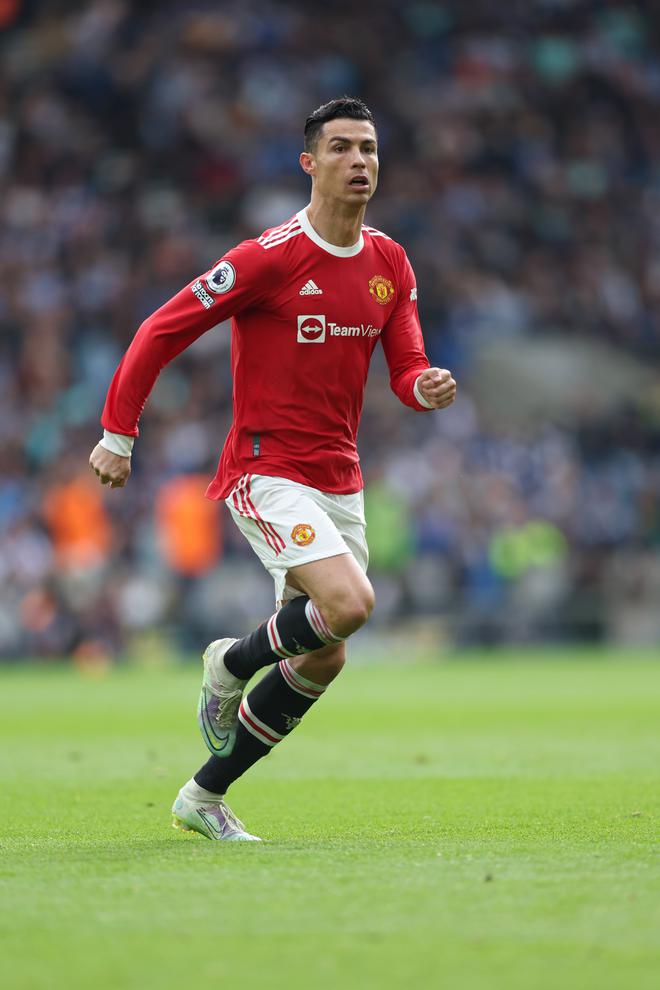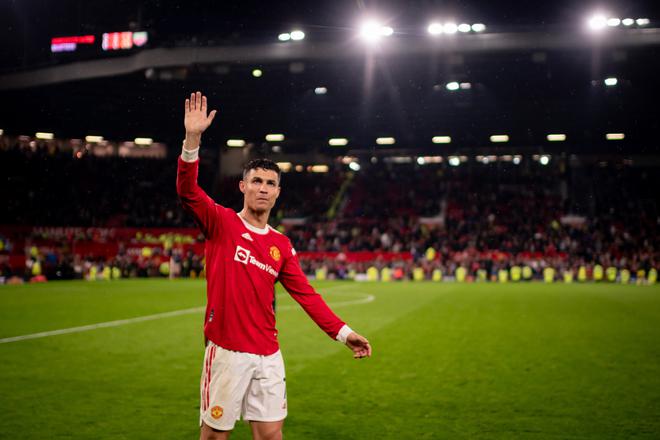

When Cristiano Ronaldo’s return to Old Trafford was announced last summer — an emotional renewal of a relationship with the club where he won eight major trophies from 2003 to 2009 — several English football experts reckoned that Manchester United was back in business.
Most pre-season predictions had the Red Devils firmly in the top four; some even had them as title contenders. The public relations push was relentless at United, detailing everything about Ronaldo, from his movements in training, his greatest goals, his reclaiming of the “iconic” No. 7 jersey, to the inside story of his goal celebration.
The mood among the fans approached elation, especially because widespread media reports said that Ronaldo’s agent, Jorge Mendes, had agreed personal terms with bitter rival Manchester City before United reclaimed its favourite son.
The decision seemed a no-brainer to many — the galvanising return of a club great with guaranteed goals and the swagger of a proven winner.
Ronaldo’s numbers in front of goal were still elite. He was the top scorer in Serie A in 2020-21 and had 101 goals and 22 assists in a total of 134 appearances for Juventus before deciding to leave Turin. Furthermore, he added two Italian league crowns and a Coppa Italia to his stacked trophy cabinet — validation, for those who sought it, that Ronaldo hadn’t lost his winning touch.
For a United side that had ceded its primacy in the Premier League for the best part of a decade, the arrival of its talisman was both a reminder of the glory days and a sign of hope for the future.
Stuff of football fantasies
Ronaldo’s start was the stuff football fantasies are made of. His first appearance back, against Newcastle — billed as one of the most anticipated occasions in the history of the Premier League — adhered to the script of the heroic return. He scored twice for United after 12 years away, in a 4-1 victory; you could forgive fans for thinking the clock had been turned back.
And yet, nine months later, the views about Ronaldo and his move to United are decidedly mixed. The club had another disappointing season, failing to qualify for the Champions League after finishing sixth in the Premier League. It also didn’t win a trophy for the fifth straight year — its longest trophy drought since 1983 when a FA Cup triumph had ended a six-year dry spell.
Just as worrying for United supporters was the football itself. The club went through two managers, Ole Gunnar Solskjaer and Ralf Rangnick, last season, with neither succeeding in coaching a coherent style. United’s play was often disjointed and error-strewn, too dependent on moments of individual quality in both boxes to be sustainable.
Especially compared with City and Liverpool, the standard-bearers, United’s football looked outdated.
What was Ronaldo’s role in all of this?
Some experts thought he was a rare bright spark in United’s bleak season; they cited his 24 goals (including three penalties) in 38 games (all competitions) as evidence of him pulling his weight. His rate of 0.68 goals per 90 minutes is lower than his career rate of 0.82, but it’s still very good, especially given he did this in a season during which he turned 37.
Others, though, disagreed with this analysis, arguing that he was the cause of deeper structural cracks which his goal-scoring wasn’t able to paper over — the team seemed to exist as a function to get the best out of him as opposed to working as a unit.
Ronaldo’s lack of defensive work and his lacklustre pressing were thought to be costing the team’s collective play. His three years at Turin were brought up: there were hints that some of his teammates at Juventus felt he was a ‘luxury player’, leading to his presence becoming divisive.
The Athletic’s correspondent James Horncastle described Ronaldo’s as “a golden spanner in the works” at United.
"You have this paradox where Ronaldo still comes up with his memorable highlights that generate a lot of reaction," he told the Euro Leagues podcast. "But all they do is show up some of the flaws within the system and the dysfunctionality that's there at United.
“When a manager signs Ronaldo, they have to compromise on their philosophy and design a system around him. If you look at the other players he has eclipsed at United, like Bruno [Fernandes], they are a shadow of who they were,” said Horncastle.
And so the appointment of Erik ten Hag, tasked with rebuilding United and returning the club to its once-lofty position, has sharpened the focus on Ronaldo’s part in the project.
Non-negotiables
Ten Hag is a manager in the mould of Pep Guardiola and Jurgen Klopp: structured positional play, high-intensity pressing and counter-pressing are non-negotiables in his philosophy.
These aren’t strengths of Ronaldo at 37; he remains an exceptional athlete, but his game in recent years has relied on efficiency of movement and ball-striking, not relentless sprinting. His output has been of such a high standard that managers have shaped their team around this. But with only one year remaining on Ronaldo’s contract, that doesn’t make sense for ten Hag.
The former Ajax boss needs to focus on the long term; a season of catering primarily to Ronaldo, should ten Hag choose that path, only prolongs the rebuilding process.
In addition to deciding whether the Portuguese superstar makes his best starting XI, the manager will also have to assess the opportunity cost of his presence: it could push back the development of a young forward worth investing in by a year.
Will Ronaldo willingly warm the bench if United buys a high-priced striker with potential? Not if his usual response to being substituted is any indication. Considering how poor the dressing room atmosphere reportedly was last season, adding an unhappy Ronaldo to it is an unnerving thought for any manager.
Given his stature, Ronaldo also has the potential to undercut ten Hag’s authority, even if he isn’t consciously looking to do so. Alex Ferguson, who presided over United’s phenomenal success, always held the view that the manager should be the undisputed leader; when a player began to threaten that status during his tenure, Ferguson usually parted ways with him.
Buy into his vision
For ten Hag, who is building from the ground up, it’s imperative that the squad buys into his vision completely. He will need to command his players’ respect, which is often easier when the manager’s word is perceived to carry more weight than everybody else’s. But unless it’s Guardiola, Klopp or Zidane, this is unlikely to happen if Ronaldo is in the same dressing room.
Ten Hag was guarded but positive when asked about Ronaldo during his first press conference. “Of course,” he said in reply to a query on whether the striker was a part of his plans. What did he expect from him? “Goals,” ten Hag said with a laugh. But when pressed on Ronaldo’s role, the Dutchman said, “I will speak to Ronaldo about that before I speak to you.”
Ronaldo, for his part, welcomed ten Hag’s appointment, recently telling the club’s website: “I know he did a fantastic job for Ajax and that he's an experienced coach but we need to give him time and things need to change — the way he wants. We are happy and excited. I wish him the best and let's believe that next year we're going to win trophies.”
Ronaldo’s role in ten Hag’s rebuild will be one of the storylines to keep an eye on next season. “I think to build up good things sometimes you have to destroy a few things,” Ronaldo said last season when the side was struggling. Several months later, those words have attained a greater and more personal significance than he perhaps intended when he said them.







